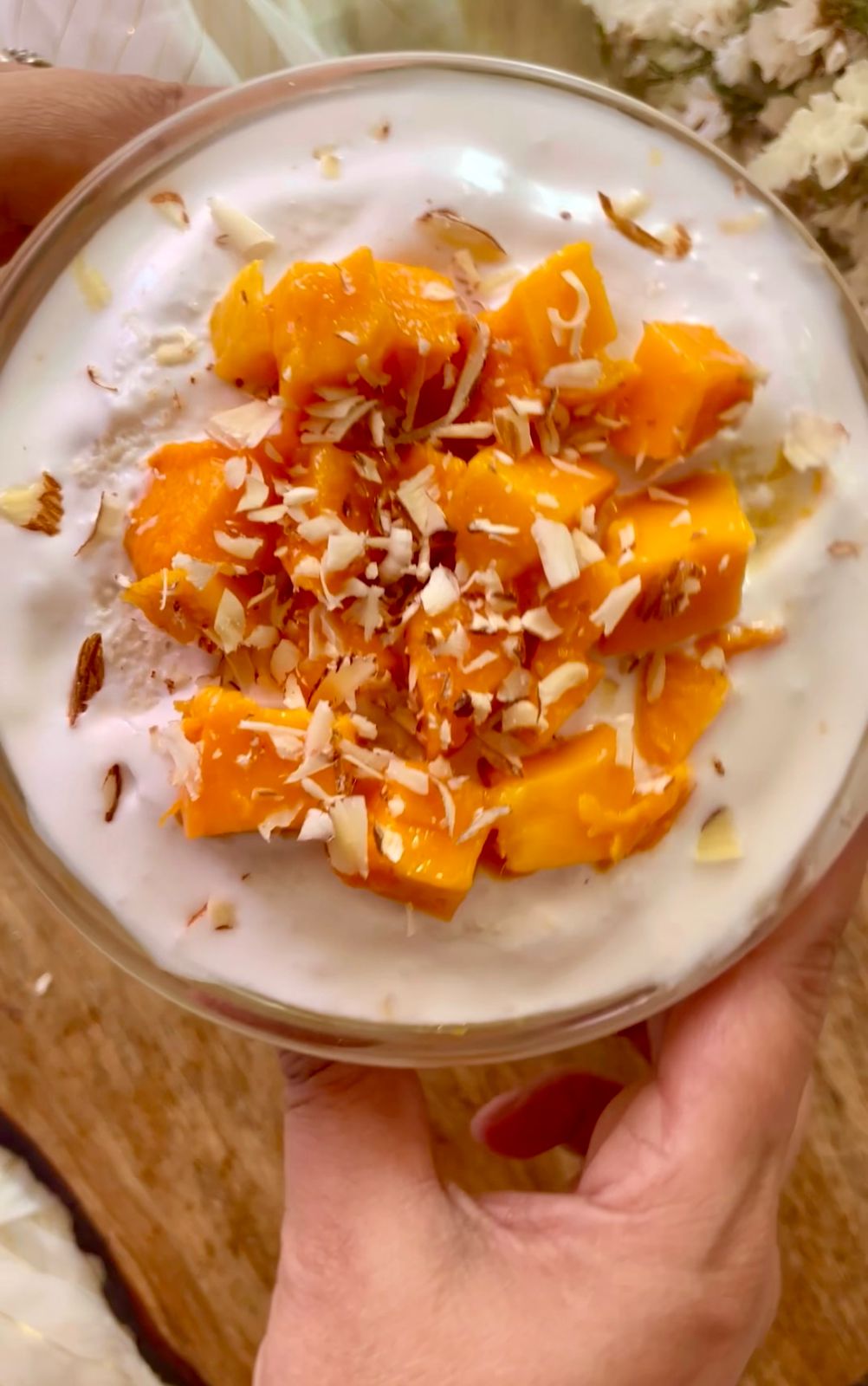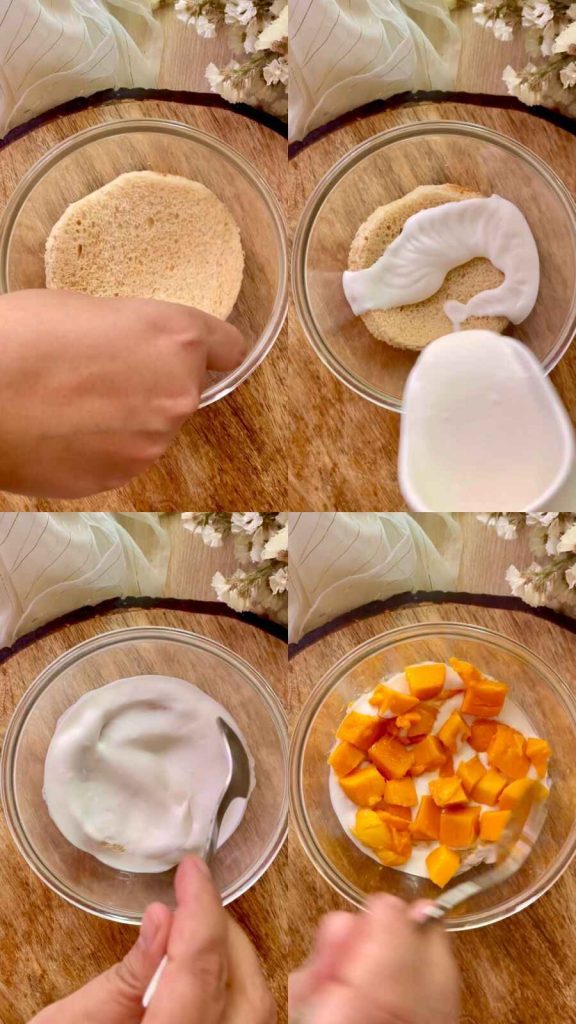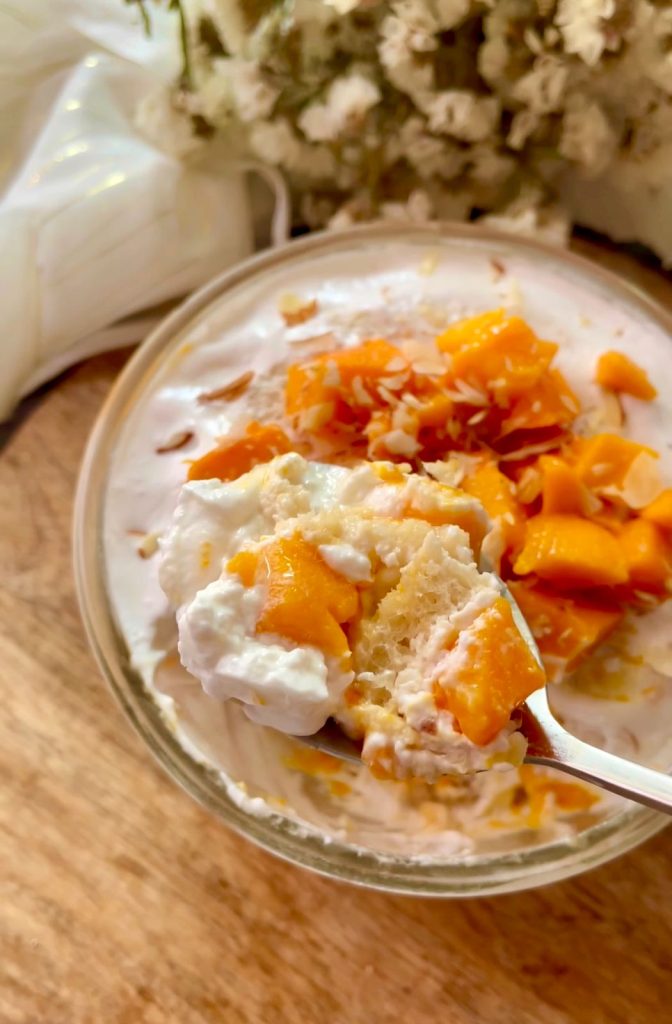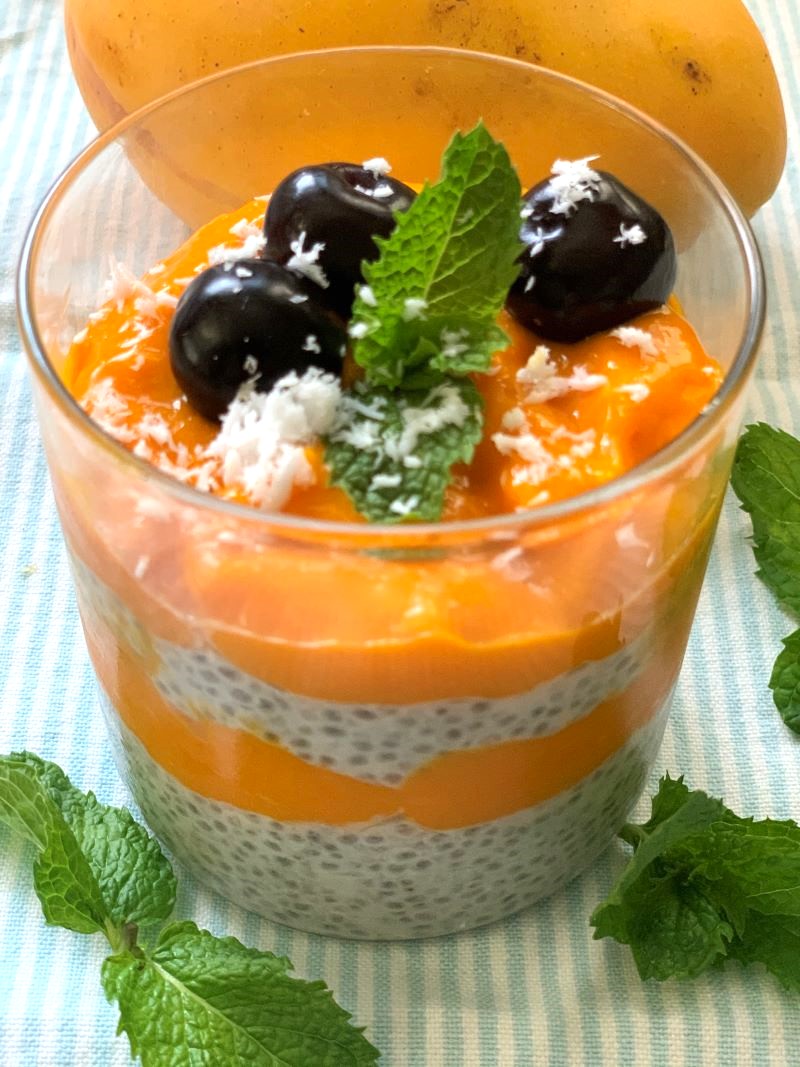
With this unbearable heat your appetite too goes for a toss. This chia seed pudding recipe has become my go-to breakfast/afternoon snack. It’s cool, creamy, and lightly sweet. Even my 10 year old keeps demanding it from time to time as an evening snack. Topped with fresh fruits with a drizzle of maple syrup and vanilla, this tastes like a dessert but with goodness of fibre, protein, healthy fats, vitamins and minerals.
Chia Pudding Recipe Ingredients
Here’s what you’ll need to make this chia pudding recipe:
- Chia seeds, of course! I have used black chia seeds but you can use white chia seeds as well.
- Coconut milk or almond milk – I like to use this light homemade coconut milk in this recipe because it makes the pudding extra-rich and creamy, but if you don’t have any on hand, don’t worry! Almond milk is also a great choice.
- Maple syrup – I mix some into the chia seed pudding to sweeten it naturally.
- Vanilla – To add more flavour. You can choose to add cinnamon too.
- Mango: It’s summer- The Mango Season! You can take any seasonal fruit of your choice. Either purée it or finely chop it. Totally upto you.
Find the complete recipe with measurements below.
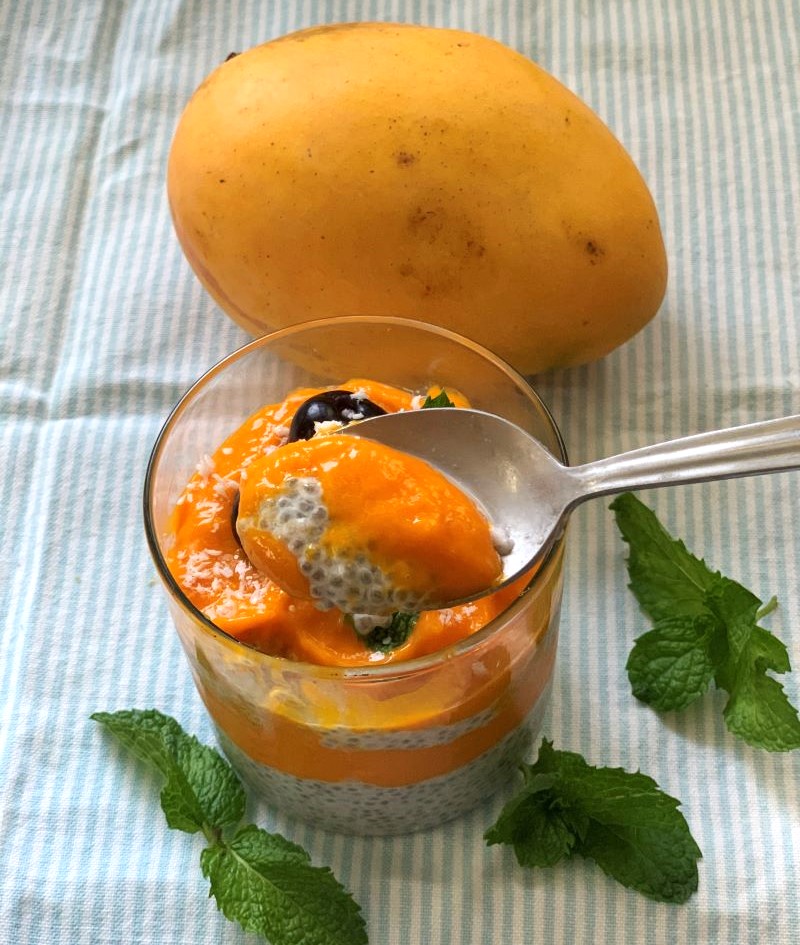
Chia seeds are great addition to your and your child’s diet.
- It’s loaded with antioxidants.
- Protein in Chia seeds is high quality protein since they have a good balance of amino acids.
- Chia seeds are high in several nutrients like calcium, phosphorus, magnesium that are important for bone health.
- It also helps in reducing inflammation
- Great source of Omega 3 fatty acids
There’s no better way of introducing these super healthy seeds in your child’s diet than this guilt free, sugar free dessert. Trust me you and your child will love it.
Recipe
Ingredients: serves 2
- 250 ml Coconut milk or any other milk of your choice.
- 1/2 cup Mango puree (you can add more too)
- 1/4th cup Chia seeds
- 1/2 tsp Vanilla extract
- 2 tbsps Pure Maple syrup or Raw Honey
Method:
- In coconut milk or any other milk of your choice, add chia seeds, vanilla extract & maple syrup/honey. Mix well and refrigerate for atleast 1 hour or maximum 12 hours. It should have thick pouring consistency.

- Puree mango in a blender.
- Now take a bowl or a jar, add a layer of soaked chia seed first. Too it with mango puree then soaked chia seeds and finish it with mango puree.
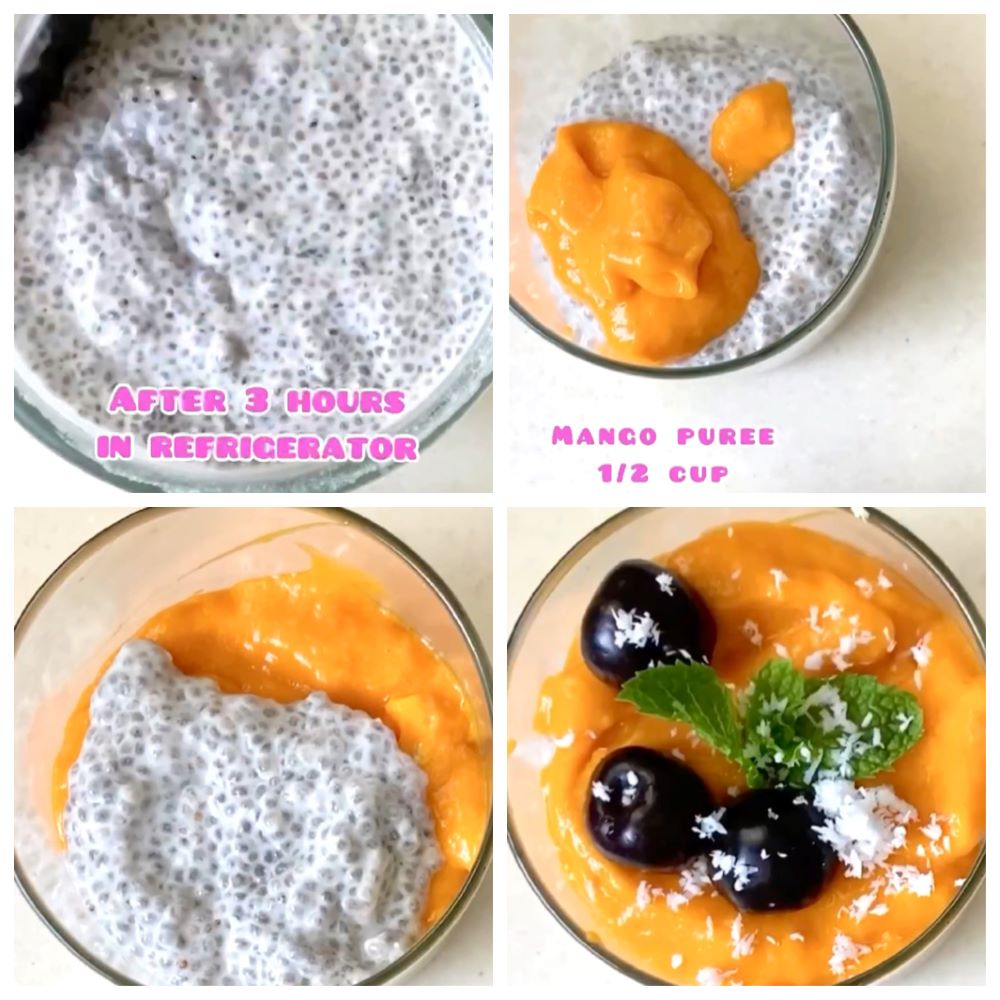
- Garnish it the way you like.
- I added mint leaves which my son conveniently chucked, some cherries and desiccated coconut.
Notes:
- You can use fruits of your choice.
- You can also add granola to it.
- This can be made ahead and refrigerated overnight so you have a quick breakfast ready.
- Store any leftovers in the covered jar or an airtight container for up to 3 days
- If the pudding becomes thick, loosen it up by adding more milk.
Enjoy this super healthy guilt free no sugar dessert. 🙂 For recipes with mangoes try this delicious summer lunch recipe that goes great with a bowl of rice Fajeto – A Gujarati Mango Kadhi or this Quick and Easy Mango Pudding that will take you 10 minutes to whip up.

